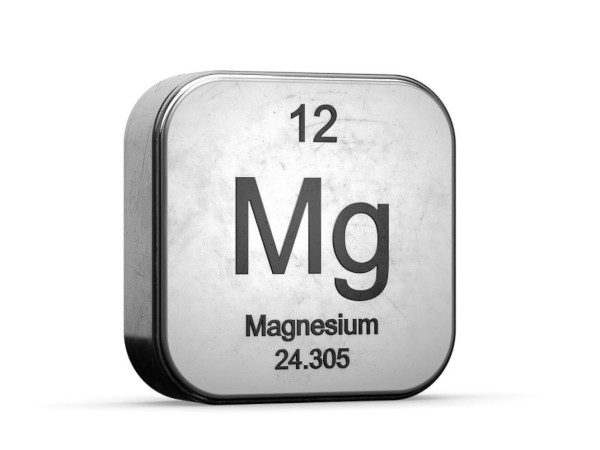Scurvy is a deficiency of vitamin C and is cured by eating fruit or taking a vitamin C supplement. We all know how important vitamin C is but apparently it’s only active as a co-factor in eight enzymes in the body. In comparison, magnesium is 100 times more powerful and is responsible for the activity of 700-800 enzyme processes! Yet doctors and the public either ignore it or use it as a laxative!
Magnesium deficiency is a public health crisis of epic proportions. So far, Dr. Dean has identified at least 65 magnesium deficiency conditions. No other government agency, university, health clinic or doctor has come close to uncovering and documenting these facts.
What follows is an overview of these conditions, some of which are addressed more fully in the 2017 edition of The Magnesium Miracle.
- Acid reflux- Spasm of the lower esophageal sphincter at the juncture of the stomach can leave the sphincter open, causing acid reflux, gastroesophageal reflux disease (GERD), or heartburn. Magnesium relieves esophageal spasms.
- Adrenal fatigue-Adrenal fatigue follows after a time of chronic stress, anxiety, and panic attacks, and it seems to be occurring in epidemic proportions in recent years. Adrenaline, noradrenaline, and cortisol (elevated in chronic stress) deplete magnesium. Stress causes excess elimination of magnesium through the urine, further compounding magnesium deficiency. “Stress” is such an overworked word, but we all suffer physical, emotional, and mental stress every day, and every bit of it drains magnesium.
- Alzheimer’s disease-Magnesium blocks the neuroinflammation caused by the inappropriate deposition of calcium and other heavy metals in brain cells. Magnesium is at work even before the inflammation appears, guarding cell ion channels and not allowing heavy metals to enter.
- Angina-The pain of angina is caused by severe spasms in heart muscles, which are caused by magnesium deficiency. The heart ventricles have the highest levels of magnesium in the whole body; this is why magnesium is so important for the pumping function of the heart.
- Anxiety and panic attacks-When the adrenals are no longer protected by sufficient magnesium, the fight-or-flight hormones adrenaline and noradrenaline become more easily triggered. When they surge erratically, they cause rapid pulse, high blood pressure, and heart palpitations. The more magnesium-deficient you are, the more exaggerated is the adrenaline response. Magnesium calms the nervous system, relaxes muscle tension, and lowers the pulse rate, helping to reduce anxiety and panic attacks.
- Arthritis-Magnesium can help dissolve calcium that builds up in joint spaces. It also can treat the pain and inflammation of arthritis as a safe substitute for pain medication.
- Asthma-Histamine production and bronchial spasms (in the smooth muscles of the bronchial tract) both increase as a result magnesium deficiency.
- Atherosclerosis with calcium deposits.Magnesium is necessary to help dissolve calcium and keep it soluble in the bloodstream. Magnesium, along with vitamin K2, helps direct calcium to the bones, where it belongs.
- Blood clots-Magnesium does not act like a blood-thinning drug. Instead, it prevents the calcium buildup that triggers clots. Magnesium naturally balances the clotting factors in the blood.
- Bowel disease-Magnesium deficiency slows down bowel peristalsis, causing constipation, which can lead to toxicity as well as symptoms of colitis, microscopic colitis, IBS, diverticulitis, and Crohn’s disease.
- Brain dysfunction-You can obtain a free copy of the 355-page book Magnesium in the Central Nervous System(2011) online and read an extensive overview of the beneficial effects of magnesium on the brain. [35] (See Chapter 5 for a list of chapters in that book.)
- Bruxism (teeth grinding)-Up to 80 percent of cases of bruxism occur during sleep, and your dentist may be the first to notice that your teeth are being gradually worn down. Bruxism is related to clenching of the jaw muscles during the day and is usually associated with stress or anxiety. Any muscle tension can be the result of magnesium deficiency.
- Cholesterol elevation-When I was in medical school in the mid-1970s, normal cholesterol levels were considered to be around 245 mg/dL. In the first edition of The Magnesium Miracle I reported allopathic medicine’s “normal” value of cholesterol at 180–220 mg/dL. Now doctors are advising that cholesterol should be below 200 mg/dL (5.2 mmol/L) to be considered normal. What doctors don’t seem to know is that magnesium, bound to ATP (Mg2+-ATP), is the controlling factor for the rate-limiting enzyme in the cholesterol biosynthesis sequence that is targeted by the statin pharmaceutical drugs. [36] Thus magnesium is responsible for naturally slowing down HMG-CoA reductase activity when cholesterol is present in sufficient quantities. To repeat, this is the same enzyme that statin drugs target for destruction, while creating magnesium deficiency.
- Chronic fatigue syndrome (CFS)- It is remarkable how magnesium can help people increase their energy and get back on track. We still don’t know what causes CFS, but in my discussion about the interaction between calcium and magnesium, I consider whether calcium excess and magnesium deficiency could be the underlying cause of mitochondrial dysfunction that many natural medicine practitioners say can trigger chronic fatigue syndrome and other chronic diseases.
- Cystitis-Magnesium deficiency causes bladder spasms, which can cause urinary frequency often misinterpreted as a bladder infection. Magnesium deficiency can also allow calcium to build up in the lining of the bladder and urethra, causing irritation that mimics cystitis.
- Depression-Serotonin, a neurotransmitter that elevates mood, depends on magnesium for its production and function, whether it’s made in the brain or in the intestines. Dopamine, a neurotransmitter that helps control the brain’s reward and pleasure centers, utilizes magnesium in several steps in its biochemical pathway. A magnesium-deficient brain is also more susceptible to allergens and foreign substances, which in some instances can cause symptoms similar to mental illness.
- Detoxification- Magnesium is crucial for the removal of toxic substances and heavy metals such as mercury, aluminum, and lead from the cells. Magnesium is a cofactor in both the production of glutathione and the function of the P450 detoxification pathways in the liver.
- Diabetes- Magnesium is necessary to make and secrete insulin, facilitates carbohydrate metabolism, and allows insulin to transfer glucose into cells. Otherwise, glucose and insulin build up in the blood, causing various types of tissue damage. Tyrosine kinase, an enzyme that allows glucose entry into the cell (along with insulin), is magnesium dependent. Seven of the ten enzymes needed to metabolize glucose in the process called glycolysis are also magnesium dependent. All these factors mean that magnesium helps to overcome insulin resistance.
- Fatigue- Magnesium-deficient patients commonly experience fatigue because hundreds of enzyme systems are underfunctioning. The most important factor in energy production is ATP, which must be bound to a magnesium ion in order to be biologically active. Mg2+-ATP is produced in the Krebs cycle, which requires magnesium in six of its eight steps. The Krebs cycle begins by using pyruvate from the glycolysis cycle and functions exclusively in the mitochondria.
- Headaches-Muscle tension and spasms in neck and head muscles can be alleviated with magnesium therapy. Magnesium can be either applied locally or taken orally.
- Heart disease- The heart, specifically the left ventricle, has the highest amount of magnesium in the whole body. Magnesium deficiency is common in people with heart disease, and taking magnesium can reduce that risk. IV magnesium can prevent heart muscle damage and cardiac arrhythmia if given at the onset of a heart attack. Most drugs used in treating heart disease drain magnesium from the body.
- Hypertension- With insufficient magnesium and too much calcium, the smooth muscles lining blood vessels can go into spasm and cause high blood pressure. If cholesterol is elevated, which can also be due to magnesium deficiency, cholesterol can bind with calcium, causing atherosclerosis in the blood vessels and worsening high blood pressure.
- Hypoglycemia- Magnesium regulates the production of insulin so that inappropriately large amounts aren’t released, which would cause the blood sugar to drop suddenly, resulting in symptoms of low blood sugar.
- Indigestion- The gastric proton pump that acidifies the contents of the stomach for proper digestion is dependent on magnesium.
- Inflammation- Most drug companies are now embracing inflammation and not cholesterol as the cause of heart disease. They don’t know what causes inflammation, but that doesn’t stop them from producing drugs to suppress it. Drug companies don’t acknowledge that calcium is extremely proinflammatory and magnesium is very anti-inflammatory. The entire inflammatory cascade (which involves substance P, interleukins, tumor necrosis factor, chemokines, and cytokines) escalates when magnesium is deficient. [37] The bottom line is that inflammation is triggered by magnesium deficiency and relative calcium excess.
- Insomnia-Magnesium relieves the muscle tension that can prevent restful sleep. Also, sleep-regulating melatonin pathway production is disturbed without sufficient magnesium. Magnesium is so effective as a sleep aid that if someone is taking magnesium and their sleep is not improved, I say, “Take more magnesium.”
- Irritable bowel syndrome-In my book IBS for Dummies, I describe the importance of magnesium in the treatment of pain and spasm in IBS. [38]
- Kidney disease-Magnesium deficiency contributes to atherosclerotic kidney failure because calcium builds up in the renal (kidney) arteries. Magnesium deficiency leads to abnormal lipid levels and worsening blood sugar control in kidney transplant patients. It’s important for kidney patients to receive picometer, stabilized ionic magnesium that is absorbed directly into cells and therefore does not build up in the blood to cause electrolyte imbalance and rhythm disturbances.
- Kidney stones- See Chapter 11 for evidence of magnesium’s ability to prevent and treat kidney stones, especially when combined with its partner, vitamin B6.
- Migraine- Deficiency of serotonin can result in migraine headaches and depression. Serotonin depends on magnesium for proper balance. Also, tiny blood clots can block capillaries in the brain, leading to migraines. Magnesium prevents calcium from causing inappropriate blood clotting. It is well known that IV and oral magnesium can treat and prevent migraine headaches.
- Musculoskeletal conditions-Insufficient magnesium and the relative excess of calcium will cause sustained muscle contraction in any muscle group in the body. The following musculoskeletal conditions are amenable to magnesium therapy:
- Muscle cramps or Muscle spasms-in any muscle of the body
- Fibrositis
- Fibromyalgia
- GI spasms-(chronic pain from undiagnosed spasms can lead to inappropriate exploratory surgery)
- Tension headaches
- Chronic neck and back pain
- Jaw tension
- Nerve problems- neuralgia, neuritis, neuropathy. Insufficient magnesium and the relative excess of calcium will cause sustained nerve excitation in any nerve cells in the body. Magnesium alleviates the following nerve disturbances that can occur:
- Burning pain, pins and needles, tingling
- Muscle weakness
- Numbness
- Paralysis
- Seizures and convulsions
- Skin sensitivity
- Twitching
- Vertigo
- Confusion
- Obstetrical and gynecological problems- Magnesium helps prevent or treat the following:
- Premenstrual syndrome
- Dysmenorrhea-(cramping pain during menses)
- Female infertility-(by relieving fallopian tube spasm)
- Premature contractions-(which can be triggered by magnesium-deficiency muscle spasms)
- Preeclampsia and eclampsia in pregnancy-(fluid retention, high blood pressure, and seizures)
- Cerebral palsy
- Sudden infant death syndrome(SIDS)
- Male infertility-(magnesium and zinc are present in significant quantities in healthy semen)
- Osteoporosis- Low magnesium in the presence of elevated calcium, with or without vitamin D, triggers a cascade of events leading to bone loss.
- Parkinson’s disease-Dopamine deficiency results in Parkinson’s disease, and magnesium is a required cofactor in the production of dopamine. Magnesium blocks the neuroinflammation caused by calcium deposits in the brain.
- Raynaud’s syndrome- Magnesium helps relax the spastic blood vessels that cause pain and numbness of the fingers.
- Sports injuries-Pain, inflammation, muscle spasm, muscle tension, and scarring can all be treated with magnesium.
- Sports recovery-Magnesium reduces lactic acid buildup and replaces loss of magnesium in sweat, which otherwise can result in post-exercise pain.
- Temporomandibular joint syndrome (TMJ)-This hinge joint connects the jawbone to the cheekbone. The joint can become irritated and inflamed due to arthritis, excessive gum chewing, injury to the teeth or jaw, misalignment of the teeth or jaw, poor posture, stress, and teeth grinding. Most of these factors are aggravated by magnesium deficiency.
- Tongue biting-In a magnesium-deficient person, the muscles of the tongue and the muscles lining the inside of the mouth can go into spasm while the person is eating, causing the teeth to suddenly and inadvertently clamp down on the tongue or the lining of the inside of the mouth.
- Tooth decay- Magnesium deficiency causes an unhealthy balance of phosphorus and calcium in saliva, which damages the teeth.
If your doctor doesn’t realize that the above sixty-five conditions can be due to magnesium deficiency and may be resolved with appropriate magnesium supplementation, you will be prescribed drugs. Unfortunately, drugs such as painkillers, diuretics, antibiotics, and cortisone further deplete magnesium and other minerals, allowing symptoms to get completely out of control.
Who Is Deficient?
The questions I’m most frequently asked about magnesium are “How do I know if I need more magnesium?” and “Should I take magnesium supplements?” I have come to the conclusion that everyone could benefit from magnesium supplementation. You can find out if you are magnesium deficient by identifying your magnesium deficiency symptoms and/or having your blood tested. I talk about the three magnesium blood tests in Chapter 16 of The Magnesium Miracle. However, a blood test and your clinical symptoms together, or your clinical symptoms alone, can give you your answer.






